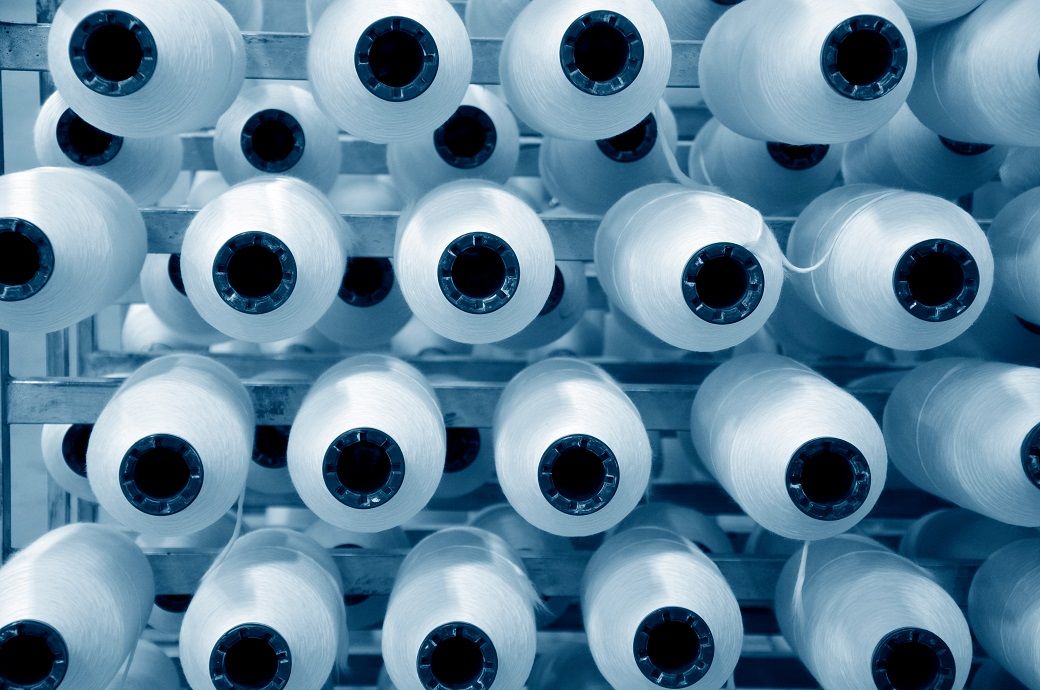
Buyers from the garment industry are clearing pending payments before the end of the current fiscal on March 31. The improved payment flow enhanced liquidity in the entire upstream value chain. However, traders acknowledged that buyers are postponing even urgent purchases for the remaining days of the current fiscal as they do not wish to incur any payment liabilities.
The Ludhiana market witnessed stability amid sluggish demand from the weaving and knitting industry. Most counts and varieties of polyester-cotton and polyester spun yarn were sold at the previous rates. A trader from the Ludhiana market told Fibre2Fashion, "Buyers remained passive because of tight payment conditions. They were occupied with managing accounts and finances, preferring to clear pending payments to micro and small-sized suppliers. Hence, they did not have additional liquidity for fresh purchasing."
In Ludhiana, 30 count PC combed yarn (48/52) traded at ₹218-228 (approximately $2.62-2.74) per kg (GST inclusive); 30 count PC carded yarn (65/35) at ₹204-214 (approximately $2.45-2.57) per kg; 20 count PC (100 per cent recycled PSF) at ₹103-108 (approximately $1.24-1.30) per kg; 30 count polyester spun at ₹151-158 (approximately $1.82-1.90) per kg (GST inclusive); and recycled polyester fibre (PET bottle fibre) at ₹70-72 (approximately $0.84-0.87) per kg, according to Fibre2Fashion’s market insight tool TexPro.
The Surat market also observed stability in polyester spun yarn and viscose yarn prices. However, there was a notable increase in payment flow from the garment industry. A trader from the Surat market told F2F, "Micro and small-sized weavers are receiving payments that have been pending for several months or even years. The new payment rule is expected to instil a new payment culture throughout the industry. Enhanced payment flow has improved liquidity across the textile sector's entire value chain. It is unlikely that yarn demand will increase in the remaining days of the current fiscal."
In Surat, 30 count polyester spun yarn was traded at ₹137-138 (approximately $1.65-1.66) per kg (GST extra); 40 count poly spun yarn at ₹149-150 (approximately $1.79-1.80) per kg; and 30 viscose compact yarn (local) at ₹196-200 (approximately $2.36-2.40) per kg (GST extra).In the Mumbai market, viscose ring-spun yarn prices remained stable amid slow demand. However, traders anticipate that viscose yarn prices might trend upward in the next month when the new fiscal begins. Trade sources indicate that local manufacturers and importers have reduced supplies of viscose yarn due to slow demand. Limited supply of the products may support prices if demand suddenly improves. Imported 30 count viscose vertex yarn was priced at ₹180-185 (approximately $2.16-2.22) per kg, and local 30 count ring-spun viscose yarn at ₹186-190 (approximately $2.24-2.28) per kg in this market, as per TexPro.
In north India, cotton prices experienced a bearish trend despite limited arrivals. Prices dropped by ₹25-30 per maund of 37.2 kg in a few centres in north India. ICE cotton also displayed weak sentiments. Traders mentioned that cotton arrivals slowed down due to the end of the season. However, this did not support cotton prices as mills, stockists, and MNCs remained inactive.
Today's arrivals were recorded at 7,500 bales of 170 kg. State-wise arrivals included: 800 bales in Punjab, 3,200 bales in Haryana, 2,000 bales in upper Rajasthan, and 15,000 bales in lower Rajasthan. Cotton prices in Punjab ranged from ₹6,000 to ₹6,075 (approximately $71.91-72.81) per maund of 37.2 kg, while in Haryana, prices ranged from ₹5,950 to ₹6,050 (approximately $71.31-72.51). In upper Rajasthan, cotton was priced between ₹5,875 and ₹6,075 (approximately $70.41-72.81) per maund. Bikaner line cotton sold for ₹6,100 to ₹6,175 (approximately $73.11-74.01) per maund. In lower Rajasthan, cotton was priced at ₹57,300 to ₹59,300 (approximately $686.72-710.69) per candy of 356 kg.
Fibre2Fashion News Desk (KUL)